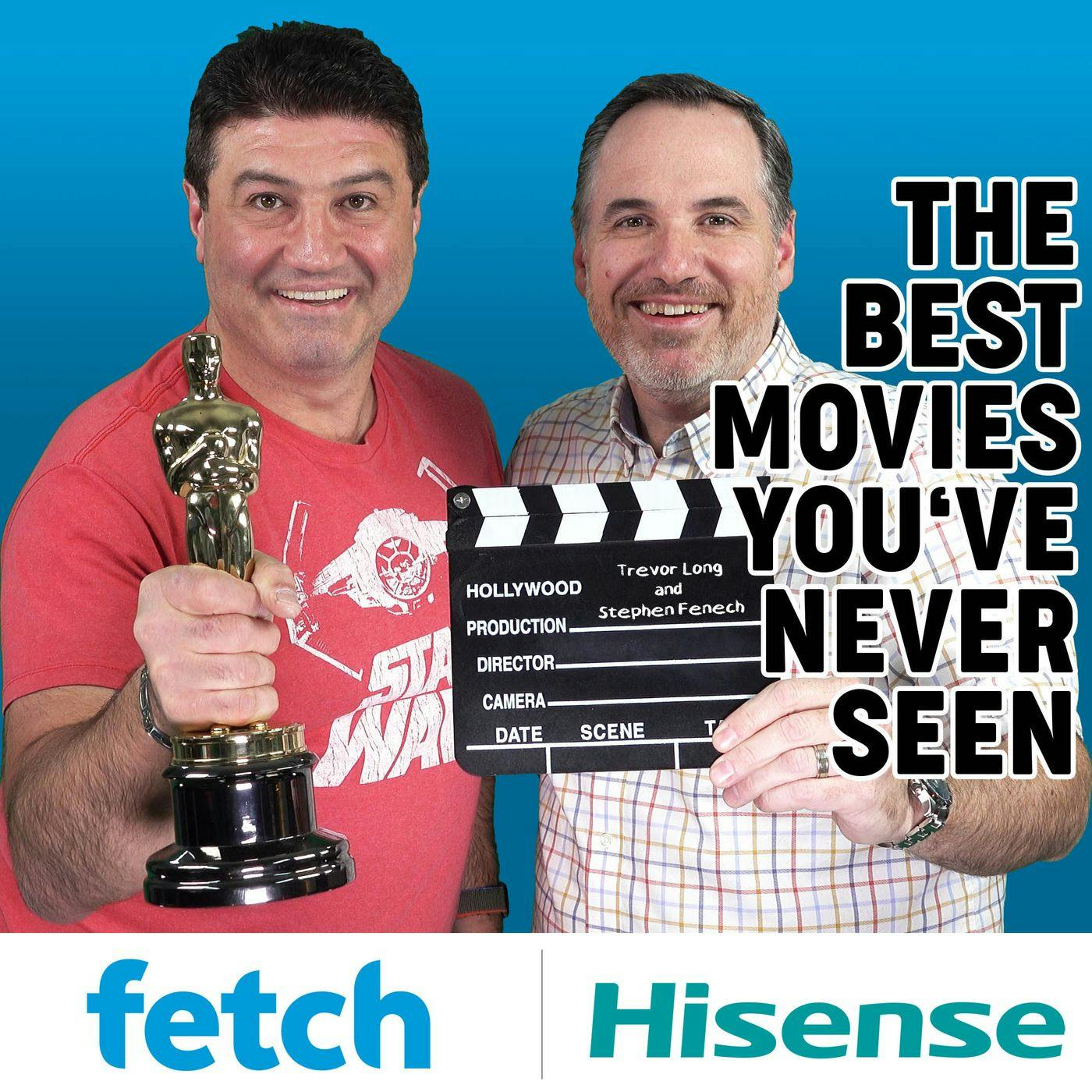.png)
The Late Bloomer Actor
Welcome to "The Late Bloomer Actor", a monthly podcast series hosted by Australian actor David John Clark.
Join David as he engages in discussions with those that have helped him on his journey as a late bloomer actor, where he shares personal stories, insights, and wisdom gained from his unique path as a late bloomer actor and the lessons he has learned, and continued to learn, from the many sources available in the acting world.
Each episode features conversations with actors and industry insiders that have crossed paths with David who generously offer their own experiences and lessons learned.
Discover practical advice, inspiration, and invaluable insights into the acting industry as David and his guests delve into a wide range of topics. From auditioning tips to navigating the complexities of the industry, honing acting skills, and cultivating mental resilience, every episode is packed with actionable takeaways to empower you on your own acting journey.
Whether you're a seasoned actor, an aspiring performer, or simply curious about the world of acting, "The Late Bloomer Actor" is here to support your growth and development. Tune in to gain clarity, confidence, and motivation as you pursue your dreams in the world of acting. Join us and let's embark on this transformative journey together!
The Late Bloomer Actor
Empowering Actors with Andrea Osvart
Text The Late Bloomer Actor a Question or Comment.
Episode 11 is with international actress and now a coach for the business side of acting, Andrea Osvart.
Andrea has returned to her home country of Hungary where she continues her very successful acting career and is now imparting her acting business acumen onto other actors.
We discuss the pitfalls and benefits of being an international actor and the complete journey her career has taken from growing up in a communist society in a small community when you have a creative desire to working with some of Hollywood's best.
Being multilingual, but also having her first language as Hungarian, we discuss the need for 'local' accents (such as the General American) and whether actors should 'lose' their natural accents.
We have a nice discussion of late bloomer actors and how they can have more 'character' in their acting and bring a sense of life to their work through their life experiences.
And we delve into the business side of acting, mental health strategies and marketing strategies, to help you stay on top of the ups and downs of the acting journey.
Please check out Andrea's coaching website at: https://andreaosvart.coach/ where you can subscribe to her newsletter and register for a no obligation first one on one coaching call as well as obtain a copy of her eBook 'Take The Lead'.
Andrea is listed on IMDB at https://www.imdb.com/name/nm0652619/
Please consider supporting the show by becoming a paid subscriber (you can cancel at any time) by clicking here and you will have the opportunity to be a part of the live recordings prior to release.
Please follow on Facebook, Instagram, YouTube and Tik Tok.
And please Rate the show on IMDB.
This episode was recorded on RiversideFM - click the link to join and record.
This episode is supported by Castability - an Audition Simulator, follow the link and use the code: LATEBLOOMERACTOR for 30% of your first monthly membership.
And finally, I am a huge advocate for and user of WeAudition - an online community for self-taping and auditions. Sign up with the PROMO code: LATEBLOOMER for 25% of your ongoing membership.
David John Clark: 1:46
Well, today's guest is Andrea Osvat. She was born in Budapest, hungary, multilingual in several languages, including Italian and, obviously, english. She started out as a full-time model and featured in over 30 commercials in her early career, but she was fortunate enough to get a small acting role alongside the awesome duo with Robert Redford and Brad Pitt, which amended her desire to focus on acting. We talk about that in our discussion. She's now been acting for over 20 years, including a pivotal role in the TV series The Transporter, as well as numerous films in the US and Europe. She's an award-winning actress in the Italian Golden Globes, the Monte Carlo TV Festival and several other wonderful film and TV awards, and she's also represented globally with agents in Berlin, budapest, italy and Los Angeles. So we have a great chat here and I hope you enjoy it. Let's see the final episode for this season, and here we go. Well, hello everyone and welcome back to the podcast. We're up to episode number 11. It's my final episode for season one and what a journey it's been. It's been great to have so many lists on board and to round out this wonderful year with some great guests that we've had on board. I'm stepping offshore to Europe and the United States. I'd like to introduce you to the wonderful Andrea Osvat Now, if I pronounce your surname correctly.
Andrea Osvart: 3:07
Hi, good morning everyone. Thank you, david. I pronounce it Osvat, andrea Osvat.
David John Clark: 3:13
Awesome, awesome. I have a habit of pronouncing surnames wrong on the podcast, so it's great that I've got your correct Welcome, andrea, and thanks for being my first European guest to be on the late Blurmer actor.
Andrea Osvart: 3:26
Oh, am I? Oh, wonderful. So congratulations to you for your first season.
David John Clark: 3:32
Thank you. Thank you, my very first guest was in Australia and she was in New York at the time, so, but you're my first overseas person who actually calls overseas home, so that's wonderful, yeah thank you. Where are you? where are you based at the moment? I know you go between Europe and the States, so where are you calling in from today?
Andrea Osvart: 3:54
I am based in Budapest now. I used to live in the States for years but I came back because I missed Europe and I missed home and family and friends, and I'm very happy to be back.
David John Clark: 4:07
Fair enough, fair enough. And I see that you still have agents in both, in Berlin, budapest, italy and LA, so you truly are remaining an international actress, then.
Andrea Osvart: 4:19
Yeah, we can say so. Yes, me and my agent, my German agent, have been working together for 16 years, 17 years, and I think it's one of my biggest achievements, because it's not the same in Italy or in America, because, you know, as we grow as actors, we sometimes have to say goodbye to people because we just outgrow them. But it wasn't the case with my international agent. My German agent actually is my worldwide agent now, i can say, because we were growing together.
David John Clark: 4:55
Awesome, awesome. Now I'd really like to talk about your career, and I'm looking at doing two aspects. So first, your journey as an actress, which continues very successfully today, as we've just started talking about, and secondly, your coaching field, which you're stepping into now, where you're inspiring other actors with mentorship and skills that you've learned along the way of your journey. But before we dive into all that, can we get you to tell us about your life, growing up, where you grew up and what led you to the world of acting and your journey so far?
Andrea Osvart: 5:28
Yeah, thank you for asking. You know, i grew up in Hungary, which is a small country in Central Europe next to Austria, but it was part of the so-called Eastern Bloc that's how people refer to it, because they are actually neighbors with Ukraine and Romania. So there wasn't much to do in the in the 80s in Hungary when it was still communism. And I grew up in a small Hungarian countryside village and I remember I used to be envious of my cousins who lived in the capital city because they could attend ballet, dance school, i don't know tennis, skating, whatever lessons they they could, and there was just nothing in the countryside where I grew up. So I sort of made a promise to myself that I would make it up for myself in the future as an adult, and I think that desire and that aspiration kept me going really far, because I eventually made it to Hollywood, and this was not a very realistic dream as a six years old or as a teenager in the Hungarian countryside, but I have a very determined personality and you know I I first left when I was like 18 years old. I I started to work as a model abroad and I started to travel and and I moved first to Italy when I was 24 and I lived there for 10 years, so I I sometimes refer to it as if it was elementary school was Hungary, high school was Italy, and then I went to university in LA, in Hollywood, so I had this progress of my career pretty lined up Wow so growing up where you were, english was not your first language, was it? No, no, we speak Hungarian here, but thank you for pointing out, because it's it takes work to speak like this. I mean, i every day I practice and I read out loud in English just to keep keep my language skills.
David John Clark: 7:50
So even after all these years, you still got to just have to do that to maintain it.
Andrea Osvart: 7:54
Yes, because it's very easy to forget and get out of practice and get out of habits. So, 10 minutes a day, i try to either speak to someone or read out loud or listen to audiobooks, for example.
David John Clark: 8:11
Wow, i just find that amazing because you've learned a whole language and then become an actress with that language, whereas I speak English. But I'm trying to to get it to make it to Hollywood or in American productions. I need to learn an American accent and I struggle just to learn an accent to get away from this Australian accent which I'm hoping you're understanding fine.
Andrea Osvart: 8:31
I am thank you. I hope it's not such an effort for you to speak this way, but I completely clearly understand you and thank you for bringing this topic up, because it's a huge topic. I was also told and early, at an early stage of my career that I should lose my European accent. You know, and people can hear different opinions about this, but I think it's actually acting in a foreign language. It's a big topic. I also wrote a blog post about this because I don't. I not only act in English, but also in Italian and German and what I found out is that I feel more free when I act in a foreign language, because when I act in front of people who know it's not my mother tongue, i feel they're more forgiving and they overlook certain little mistakes maybe. So that's what gives me a mindset of I don't have to be perfect, which I should be perfect in in my mother tongue. And maybe even you, when you act in English, you feel like you have to pronounce everything perfect and you have to do the intonation perfect and everything just perfect, otherwise the audience will go. But if you act in a foreign language, then then you have the freedom of making mistakes. Wow wow, that's interesting.
David John Clark: 10:03
I bet you know and, like you said, a lot of people have encouraged you to lose your accent, but When you speak English and when you're using your accent, not being American or another another country, that's who you are and I know a lot of productions and now Going away. There's a lot of talk about saying we don't want actors who are putting on an accent anymore, we want actors who are Themselves. Yeah, so if they want to text and I want to text and I don't know if that's changing, hearing a lot about it.
Andrea Osvart: 10:32
I hope so. I hope so and I agree because it's it's a. It's a completely wrong Wait to approach this business to if you have to change who you are, because then on the long run and long term that will have side effects on your persona, on your personality, because you can literally sort of lose yourself and not knowing anymore who you really are. So if I have to act like as if I was an American, i mean maybe I can try and have fun to do that, but in the long run I lived in America. So I know I wasn't, i wasn't feeling, i didn't feel belonging there. That's not where I belong. So it's a sense of belonging and your identity that you have to keep to stand out, otherwise you just become a copy of someone else.
David John Clark: 11:31
Fair enough and that's not interesting and a lot of it's about culture, isn't it? I mean, you need to know and be the culture to change. But so obviously, if you were to go to England and play an actress in a period piece, you need to. You need to learn the accent and play that accent. But if you're going to England and playing a modern day crime show, there's no reason why you can't be a European living in England. Who's who's now the detective for the other criminal or anything like that. And I think a lot of the productions are now changing that and reaching out and saying we've got a diversity in casting. We can have a diversity in cultures and diversity in backgrounds. It doesn't have to be an American police officer, it can be an Australian police officer who now lives in America.
Andrea Osvart: 12:16
Yeah, yeah, great, great way to put it, and I agree and I'm happy to hear that Of course I wouldn't be able to play probably Shakespeare in a British theater, because that would just not be me And it would take an incredible amount of effort for me to to speak with like British English and and that old ancient language that I don't really know.
David John Clark: 12:44
Shakespeare is very, very special and I've never had any background in training in Shakespeare either, so just the little bits I've had, i'm going to be scared even think about it. I just want to quickly touch on your early days in your acting career as a new actress. So you were a model for quite a few years, did a lot of commercials, and then you were fortunate, i believe, to get a role a small role on Spy game in 2001, alongside the wonderful Robert Redford and Brad Pitt.
Andrea Osvart: 13:14
How was that as an experience as a young actress?
David John Clark: 13:16
Quite a start right.
Andrea Osvart: 13:20
Oh yeah, i was. I was cast in this wonderful evergreen movies by game because it was partly shot in Budapest And I played the niece of Robert Redford in it and this set me up for for acting, for my acting life. And you know Tony Scott, the director, already passed away, but when I was living in LA I had a chance and I bumped into him accidentally in a restaurant once and I sort of blamed him and I told him it's your fault, you don't remember me, but you cast me, like 15 years before, in this movie in Hungary, and you made me believe that I was worthy enough and it was that I. It was worth to take the risk and try to become an actress, or a screen actress or a Hollywood actress. Because you made me believe that you cast me and and made me feel like I'm worthy and I'm talented enough to play opposite Robert Redford And Brad Pitt. So it was a huge experience. And of course, then after I got other smaller productions, even flops, so it, the rollercoaster started high, but eventually, yes, it's it ups and downs.
David John Clark: 14:41
Cool. And so when you started your acting journey in Hungary, i've read that you said that it was a difficult journey, but you had a family not supporting your more, concerned that you were trying to go down a path that in your country wasn't a very available option. And you did a. You did a lot of small courses because that's all you had available to do. So what acting training have you had over over all these years? or is it pretty much real world on set?
Andrea Osvart: 15:11
I could call myself also a late bloomer, because in Hungary the drama school, the official state university we call it for drama You can only apply until you're 21 years old. I think, yes, it's quite strict, it's maybe the communist mentality, but it's still like this because, i was told, the teachers believe that when, when you don't have your personality just ready yet, it's, they're still able to work with you and form you and shape you And that's what they want. But above that age you already have a strong personality. So it's more difficult to to shape you and make you a good actor, which I don't agree with. So I was. I realized quite late that I wanted to become an actor and the university wasn't an option for me because I moved from the countryside to the capital and I had to make a living and I had to work. And in Hungary, if you are doing the university for arts, you're not allowed to work for four years because they say you're not ready. You're not ready yet. So I did a one year long acting workshop, a course, and then I moved to Italy. I did another other year there in a school called international acting school.
David John Clark: 16:50
Okay well, and So I always sort of lean on this for when I'm asking either industry guests or fellow actors or fellow late bloomers, let's go, we can call each other a late bloomer. So most of us, when we do, start out like we haven't had a chance to go to those drama schools and we learn with those small courses. So do you see the benefits of older actors bringing to them that life experience And you've already said that your, you know the university is where you weren't allowed to go unless you were 21 or under, because they want to demold you. And does that make you an actor if you don't have any life experience? So do you see the difference in the younger actors who've been at it for a while compared to an actor who's just bringing life experience only?
Andrea Osvart: 17:33
Good question. I feel there is more character in late bloomers because they have actually something to say and they have something to contribute with, while young actors are so inexperienced and shy sometimes and insecure that that can be a barrier of expressing themselves properly. And I really like to work with actors who are not professionally trained because they bring they bring a sense of life to the work.
David John Clark: 18:14
I do find that. I mean it's not it's not rubbishing young actors a call, of course, because they will obviously learn that over time and they will get that life experience. And I've had a previous guest on here who went through one of the drama schools here in Australia and he says everyone it's getting younger and younger and younger in Australia now and they're punching out the young beautiful actors and actresses. you know the ripped abs and stuff. We've got a show here called Home and Away, so they're all young actors and beautiful and pretty people. So whereas if we watch the streaming TV shows now, the characters are changing and we're seeing older actors and people with life experience and injuries and sunburnt hair and scars and wrinkles and that makes such a character, doesn't it? Because, i mean, beautiful people are beautiful people and and that's what life has both sides, both sides. But TV can't be one type of person, can it?
Andrea Osvart: 19:14
It's got to be everybody, i know. But it's also such an interesting topic because, you know, i used to be a model, so I guess. I used to be considered as beautiful and attractive. So I was cast at the beginning of my career, also for my appearance and my looks. So, and I really had to fight hard against this belief that I'm only just a body and I'm only just a pretty face and there's nothing in it and there's nothing behind. So of course, i didn't have life experience, but I knew I had personality, i had determination and my thoughts, but still this face and body was somehow playing a part in obstaculating me, like being sometimes working against me, because I wanted more complicated parts, deeper parts, more meaningful parts, not just to play the chick, you know, next to someone. So it's always I'm always careful when talking about beautiful people getting into acting because because beautiful people are also just as valid and they should not be judged and labeled just because they're beautiful.
David John Clark: 20:39
And I mean and beauty is two things is both physical and inner as well, isn't it? Now we're getting really deep, of course, but so if you've got the right personality and you treat people the right way, that's half the journey really to being a great actor.
Andrea Osvart: 21:00
Yeah, yeah, absolutely.
David John Clark: 21:03
And now that sort of leans a little bit to your journey came up. You've got a few blog posts that you talk about some of the difficulties that you had in getting your acting career going And I've got a quote from you here that you say but I didn't give up. Instead of listening to all the discouraging voices, i shut my mouth and rolled up my slaves and I changed my message. I absolutely love that.
Andrea Osvart: 21:26
Oh, you read my ebook.
David John Clark: 21:27
I read some of it. You read my ebook.
Andrea Osvart: 21:29
Thank you. Thank you for listening.
David John Clark: 21:31
I love it. It's interesting because I've just listened to some motivational stuff from Arnold Schwarzenegger. Who's you know he's similar journey out of Austria. You know he didn't want to stay there and become a farmer and do what his family expected, so he moved to America because he had a dream and he persevered And he said a lot of things like he was told that he can't or it's impossible And he said, well, no, i can and it's possible. And I think that's what you were leaning towards. It's what your journey is.
Andrea Osvart: 22:05
I already realized, when someone tells you you can't, it means they can't, so never listen to, even if it's told by your mom or your spouse or your friends that you cannot, because it just means they cannot. So it's a game of you know, mindset. And well, thank you for bringing up my ebook, because if you go on my website then you can download this ebook for free. And I tried to summarize a little bit of my principles, according to which I built up my career, which is nearly 25 years long, and I started to help actors because I got approached by a lot of actors about for advice And and I'm trying to put it into words And apparently it's helping others, and it also helped me to understand and become conscious about how I work as a person and what served me and what didn't serve me. So there, these are quite universal principles, but especially in acting, i wrote this ebook for actors and entertainment workers that what these principles need to or have to do with in the entertainment world.
David John Clark: 23:31
That's awesome And a lot of this will lead into. We'll talk about your coaching in a moment And obviously, the reason why you've got into coaching and writing your blog and your e-book is because of hurdles that you've faced in your journey, hurdles that you've had to jump over. What advice can you give listeners so that they can start thinking about those hurdles and when they're presented with them, because you talk a lot about mental health for actors, such as one issue being the desire to belong as well as the competition actors are facing. So, all these things, that the little hurdles that are thrown at us every day, what advice do you have to act as to push through those moments?
Andrea Osvart: 24:11
Yes, every day is different, and also me. I'm different every day. I can have good days and bad days as well. So the most difficult times for actors are, i think, when they are in transition, and transitioning in between drops a lot of downtime, and I think it helps if you know why you're doing this. It's such a simple question but it's very difficult to answer. So you have to be clear about what you do and why you do it. And if you're clear about that and this is what I'm helping other actors with to understand themselves if they want a guest starring role or a principal role, i usually like to go deeper and ask them what a guest starring role means to them and what they think it will bring to them that they're lacking and they're missing in their lives. So what does that role represent And what they were aspiring for when they were little like? when I was six years old and I didn't have the means to go to drama school or participate in any art activity, i made this promise to myself that I would make it up to myself and I would also help my mother and relieve my mother from this weight of not having money and not being able to pay for these kind of luxury things, like a music lesson, for example. So I had this drive in me and when I think about my young self, my inner child, it always helps me to pull myself out of these unlucky or unfortunate moments when I'm out of work or when I'm insecure.
David John Clark: 26:22
We all have those moments I've spoken about it numerous times about the rollercoaster, the ups and downs, and when you're up, you're just elated and you're loving the journey. But then, when you have those down moments, you question everything about yourself, don't you?
Andrea Osvart: 26:37
Yes, because the world makes you feel like they don't need you. You're not wanted. Nobody's missing you, you're not worthy enough, they've forgotten about you. Maybe you're not talented. You never know if you ever gonna book a job again. This profession is full of uncertainties and it is a rollercoaster, and no wonder why so many actors leave entertainment and give up because it's so much out of our control. But there are ways to keep your sanity, your mental health, and find ways that coping mechanisms and strategic thinking that will help you not only keep your mental health but also to be able to channel these negative experiences into your art, into your roles, and they can teach you also how to be patient and how to trust the process and trust yourself, your instinct that I do want to do this, i know I can do this and I was born to do this. and the affirmation and reaffirmation will make it happen, because it will manifest.
David John Clark: 28:08
And you were saying a lot of the times, especially about going through those moments when you don't have work. Do you believe actors should have their safety job, like a job that's not acting, that they can do when they're not acting? Or do you believe actors, if you want to be an actor, you should be full time actor? I mean, obviously you have to eat, so you need to find a way to.
Andrea Osvart: 28:29
My theory is that in the first 15 years of your career you have to push it. You have to push it hard and focus on acting only because it requires a lot of energy and focus And there's so much to learn and to be trained. You have to watch all the movies that are out there and know everybody in your field, in your, on your market. So in your first 15 years you are making and building the foundation for your life career. So I would insist that you try everything not to become a waiter, but of course every situation is different and every circumstance is different. So it's very hard to. It's easy to say but it's hard to do. But then later on, when you realize that you are not only an actor, you're also a person and a human being and a neighbor or a father or a mother or whatever. You are other identities in life, i think it's helpful to have side hustle or I don't know how they call it or a job, that or maybe even if you do just charity on a regular basis, that will give you something to do and something meaningful, that will give you back your sense of self.
David John Clark: 30:02
Yeah, i've had a casting director who talked about your plan B. So your plan A is your acting career, which you need to put all the focus on and making sure that you're doing as much as you can professionally and meeting goals and the business side of acting, which I'll ask you a moment about. But having that plan B that fall back about raising money, whether that's you're fortunate to have a trust fund in the background or some sort of career in the background. See, my journey is I'm a full-time public servant, so I started an actor later on. So I've decided I want to be an actor, but I have to keep my main job until I'm ready to retire, so I make it work and I treat it professionally. So I think that's the big thing for people is that, hey, if you can become a full-time actor, go and do it and do it 100%. If you can't be an actor 100% of the time, be 100% on your efforts all the time.
Andrea Osvart: 31:01
Yeah.
David John Clark: 31:02
But I would.
Andrea Osvart: 31:03
yeah, but it's such an interesting question Who is a full-time actor? I don't know if there is any full-time actor at all, because if I think of Robert Redford or Brett Pitt the two that we already talked about they're not full-time actors either. They do other things as well. So it's just an image and just a perception, what we have of others, that we think it's true, it's not fantasy, but it's none the reality, not necessarily the reality. so being a full time actor is maybe someone who's doing theater every day And rehearsing every day, but that's very rare and particularly i'm a screen actor, so i'm not playing in theaters, so I was never a full time actor. my career is 25 years long and i have like 40 50 film credits, but But i'm still today, not a full time actor. in this moment i'm not shooting anything. of course, i just got a casting call and i'm in talks for projects, but in this very particular moment and day, i am not hired. so am i a full time actor? I'm not hired. so these are also like the principles and the words that we might want to replace in our heads, because they're not helping us and they're not serving us. that, you know, we want to aspire to be full time actors. why there is no such thing as actors?
David John Clark: 32:39
But you know you, when you're not on set, you're running your coaching, so you're you're passing on your knowledge and your skills to other people. I know obviously that may or may not involve an income as well, but it's, it's meeting both ends, it's you're helping other people out. So That brings us around to we were leaning towards it before about the business side of acting, regardless of your journey. So you talk about in your coaching To bring actors for to become international actors or to actors wherever they want to be. You teach and you coach in areas ranging from the basics, which is obviously very, very necessary marketing and self management, representation, communication and Maybe, maybe the most important, work life balance. Now, obviously these would all be way out of scope of the podcast. We could talk for hours about them, but can you elaborate A little on one of these, or just a general oversight what you, what you teach as a coach and what you think actors can take from that whole area?
Andrea Osvart: 33:42
Yeah, i think what I teach is is not has not been taught yet. I mean, i haven't found it anywhere else. I've read a few books very few books and very few literature exists about performers. Psychology, acting schools teach the craft of acting, which is which is like a full time job to learn how to act properly technically, but what I don't teach is is how to be prepared for, for the setbacks, for the ups and downs, for the unforeseen events, for the competition that you are about to face, and for that one needs to have the fundamentals in themselves. So What I really like, and I like the most in this, is that Finding out what drives people to to become actors and And how to keep their motivation, even if the word drives up and there's not much to do so. These are things that are outside of acting, but they have a lot to do with how to function and how to build success and lasting success in film.
David John Clark: 35:13
And it's a lot of. It's not just for actors either, isn't it's about developing a resilience to life, because life can throw you so much? And how do you think actors Need to address the negative side of the industry? there are some big negatives and you know we've had things happen in the world now where actors have been taken advantage of. What's the best way for actors to know that they're not being taken advantage of and they're not being put down? you know, what can we learn from that, you think?
Andrea Osvart: 35:44
Yes, i've had my own experiences as well, and I've seen other actors going down roads that I just find tragic. So it would be just high time for the industry to pay more attention to the mental health of industry workers. And there are symptoms. I also experienced some of the symptoms. I also read a wrote a chapter about this in an in another publishing, and there is a book called Transforming Your Life that you can find on Amazon And I wrote the chapter about this. That kind of sort of like Hollywood made me almost like losing my sanity because It was just dehumanizing. it's a system that dehumanizes people, not only actors. So once you feel on yourself these symptoms of being on edge or grumpy or irritated all the time, it's a sign. It's a sign that your nervous system is not, it cannot deal with this probably any longer, and you know extremely long shooting schedules and so on and so on. So the best thing that people can do in this case is, of course, to talk to someone like really, there are hotlines in Australia, in America, there are not so many in Europe yet. But what I would advise for everybody and it's quite easy to do is to go on a trip And by going far and get distant from that place where you have this, you produce these symptoms, you are changing perspective and you're going to be able to look at the problem from an outside point of view And even the problem will become distant. So I often use this technique for myself that I sit on a plane and I just went somewhere And that prevented me from going back to the problem. And it was a self-help mechanism of physically getting distant from the place where I was not feeling right And that helped me not only physically but even mentally.
David John Clark: 38:12
And I think a lot of actors can fall into the trap of wanting the fame and the fortune to become that actor, so much that they will listen to anybody And that's what has been the past problems, isn't it? And we're finding ways now to stop people taking advantage of actors in that way, and a lot of the unions now around the world have those support services there. So if you think you're in a bad place, that you've got somewhere to ring up and support agencies to help you out. So I think it's a great thing that it's changing around the world.
Andrea Osvart: 38:47
Hopefully yes, and as I said in the beginning of my career and as I wrote it in the e-book, i stopped listening to the discouraging voices. But you also have to filter out the flattering voices that are not honest and not real, because sometimes people hype you because you're new or you're just the actual star of the moment, but they don't really necessarily care about you as a person. They care about you as a product that can bring them success or money or fame, so they like this stardust around you, but then when you don't deliver or change or out of work, these people disappear and then you can feel really lonely. So you have to be able also to deal with, sorry to say, the bullshit of this business.
David John Clark: 39:51
Because there's so much.
Andrea Osvart: 39:55
And there is a famous phrase that I like to quote from Sam Spiegel, a Hollywood producer, that says when actors the problem starts, when actors start to believe in their own publicity.
David John Clark: 40:14
Wow.
Andrea Osvart: 40:15
Because sometimes we actors see ourselves on billboards, on the cover of magazines, on television. We are followed by fans and photographers and paparazzi and then we believe that we are entitled or different or superior to someone or others. But it's not. It's just, it's artificial. It's you are made a star by other people, So they can make you a star, but they can also make you a beggar. It's really. You also have to learn how to handle stardom and fame and social media being targeted. This is also part of my program that I teach. Of course, not so not to all of the actors, but only those who get to this point.
David John Clark: 41:11
And I suppose it means don't letting your ego become something that it's not. I was on way back in the 90s. I did extra work in Sydney and I was on set with Guy Pearce for a movie called Dating the Enemy And we were on a break and everyone was having their meals and typical movie set. Your crew and your leading stars all go first for food and all the extras line up last. So we were doing the right thing. Guy Pearce was on a phone call on his mobile chatting away and everyone else had eaten And so we were all lined up. He finished his phone call and he came over to join the crew And so we've sort of made a gap to let him go at the front, because he's the star of the show And he says no, no, you guys were all here first and he joined the back of the line. So that's his ego, not writing checks, as they said in the movie.
Andrea Osvart: 41:56
That's what I was talking about.
David John Clark: 41:58
And I love it. I think that makes a great star When you get someone that's at the top and they're like that. that's what I aspire to be as an actor.
Andrea Osvart: 42:06
Exactly So hopefully he is a good example for someone who knows his place and he kept his mental sanity. Probably he has great support like family or friends and a support system around himself, which is very important that you have someone who holds your hand even when you are out of work.
David John Clark: 42:30
And I was going to ask you talked a lot about before, but so it's about having the right team behind you, both, whether that's your family or your own family, or your agents and your managers. So having that team there that you know that when the works isn't there, they're still there, holding you back, i looking you, looking for more work for you, but also there is your support network. Is that correct?
Andrea Osvart: 42:49
Yes, they can support you, although you can't really bother your agent all the time, every day with bombarding, bombarding them with phone calls like I'm free, you know I've got coffee. Yes, take care of me. You know you're not babies anymore. So they have their lives and they have their jobs and other actors to to take care of. So you need also people outside of your professional team, because this is just your professional life but you also have to have your personal life and the support system in there, i think independently from work, because unfortunately people change, people quit, people relocate, so things can happen And if you rely yourself too much on one person or that particular person then you can fall apart if that person maybe gets sick or gets a divorce or quit his job and goes to live abroad. You know these kind of things that can happen unexpectedly Fair enough.
David John Clark: 44:03
Awesome. Well, andrea, thank you. So this has been insightful. It's great to get your thoughts on both side of the acting, you know, since you've done the acting journey and the business side as well, which is part of your coaching. probably they're both really as important as each other. Before we go, i've got a couple of fast paced questions I'd like to throw at you at the end, but I wanted to just quickly touch base on your current projects. now that you've brought yourself back to Europe, you seem pretty busy still as an actress and producer. You've just finished a TV series for Amazon, i believe, called therapy. Is that correct?
Andrea Osvart: 44:36
Yes, it's correct, it's a six episode series that's coming out early next year.
David John Clark: 44:42
And where best was that filmed?
Andrea Osvart: 44:45
It was filmed in Germany. It's a German production and it's based on a bestseller novel by Sebastian Fittsik.
David John Clark: 44:53
Awesome, Awesome. So for all those actors that are, you know, saying I need to get out of my hometown or I need to get out of my state or I need to get to America, they don't have to. I mean, we can aspire to be that international actor, but there's so much work around. You can choose where you want to work and get the jobs.
Andrea Osvart: 45:11
But still there is a plus in going abroad for an adventure, because when you go abroad, you all you again have a different mindset of yourself And I think it was helpful for me when I went abroad that I needed the job. So this course, the force that I needed to make a living and maintain myself and support myself, made me more hungry and made me want to book more. So if people, if people lay back and they don't need their comfort zones, you know it's the energy is different sometimes because they don't really need it in terms of like having food on the table.
David John Clark: 46:03
And that makes perfect sense. Okay, before I ask you the quick questions, where can people find you and get some information on your acting career And, obviously, if they're interested in getting coaching from you, what's the best place for them to find you?
Andrea Osvart: 46:17
Thank you. I have two websites. Andreaozvardcom is my acting website, but I recently just started my coaching website, andreaozvardcoach, and you can book a free transformation call with me. It's complimentary for 45 minutes And we can have a chat and and see if we, if I, can give you insights And if you like my insights, then we can decide whether or not it's a good fit for both to work together. And there is a lot of free resources as well, like my ebook or that you can download for free from AndreaOzvardcoach.
David John Clark: 46:58
I've seen already Torsen.
Andrea Osvart: 47:00
And my blog posts posts that can be helpful as well.
David John Clark: 47:04
That's fantastic. Any of you on Facebook or Instagram.
Andrea Osvart: 47:11
I am on both. With Facebook It's a bit tricky because I'm already over 5000 friends, so you can't really add me as a friend And if you message me there, I that message probably ends up in a folder that I don't check.
David John Clark: 47:26
Fair enough.
Andrea Osvart: 47:27
It's better to contact me through my website.
David John Clark: 47:31
Awesome, Awesome. And I'll put all those links into the show notes so people can find them easy anyway.
Andrea Osvart: 47:37
So all right, thank you.
David John Clark: 47:39
A couple quick questions for you. What is your favorite? what would your favorite t-shirt quote be? if you had a quote and you put it on your shirt, what would you have?
Andrea Osvart: 47:48
I'm such a serious girl I would put how you do anything is how you do everything.
David John Clark: 47:56
I like that. That's very nice. I haven't heard that one before. It's awesome, it's beautiful. And what do you like most about acting?
Andrea Osvart: 48:05
The passion. It's so vivid, it's lively. I feel like I'm alive when I act.
David John Clark: 48:15
And I agree totally with you. I think someone once said to me that once you stop enjoying it, once you stop having fun, then you need to give it up. Yeah, if you could have. if you could have dinner with anyone, living or past, who would it be? and why This always? makes people think.
Andrea Osvart: 48:39
I don't know, maybe his pleasure If I can say that I worked with him.
David John Clark: 48:46
Oh well, i'm serious.
Andrea Osvart: 48:47
Yeah, i worked with him, but the scene I played was so small that it ended up cut out from the movie, unfortunately, but I have photos with him and pictures. But he was such an amazing actor and it's such a loss. I think it's very rare to that a star is born as a talented actor like that is born, so for me he was. He was a big, my favorite actor and a big example.
David John Clark: 49:17
Wow, and being Australian, Most of my list is we all know him. We've got a scholarship that they they offer each year that he fled led your scholarship. So it was a very tragic loss to the Australian acting community and to the world, i think, because he he was certainly going to bring some amazing characters to life for us And it's such a shame And on. But that is absolutely wonderful that you had that moment to meet him and take something away. So that that's fantastic. Finally, andrea, have I missed anything in this interview that you really want to mention or that we should talk about quickly?
Andrea Osvart: 49:55
to wrap things up with, Well, i think you are very prepared And I'm glad that you asked me about the coaching, because the coaching is also helping not only others but myself as well, like putting together my thoughts and and structuring this program that I am writing for actors. So whoever is interested, i'm honored if you, if you reach out and we can have a chat and have this call and looking forward to connect.
David John Clark: 50:30
And that's what I love about the world we live in now. COVID's made it even more like, brought us all more closer, I think with Zoom calls and or Riverside FM calls and being able to to get your training anywhere. I mean, if you look back at your start of your career, you didn't have this ability to just jump on the internet and do a course or to be mentored by someone 10,000 kilometers away. So I think it's wonderful.
Andrea Osvart: 50:54
Yeah, yeah, it is. It is actually the advantage of this digital world.
David John Clark: 51:00
I love it. Well, thank you again, andrea. I know you've been a big support of the podcast and it's absolutely fantastic to have you on board, as I said before, my first European guest and my last guest for season one of 2022. I just love the journey that I've been on and I've had so many wonderful people on board, all with so many insights the same as you've had today to share. So that's why I do the podcast and that's why everyone's listening, i think, so thank you very much for being on board.
Andrea Osvart: 51:30
Good for you. I'm so happy for you that you found this way of enjoying yourself and and make us feel welcome, and also that we could contribute to to your show and hopefully to help your listeners.
David John Clark: 51:47
Thank you And it's a it's a great way to meet people, because whether me and you may never have met, but I like to say at the end of my podcast, and I'd like to say it to you direct Perhaps we'll see each other on set sometime soon.
Andrea Osvart: 51:58
Yes, that would be wonderful, thank you very much.
David John Clark: 52:02
Good to talk to you, thank you.
Podcasts we love
Check out these other fine podcasts recommended by us, not an algorithm.
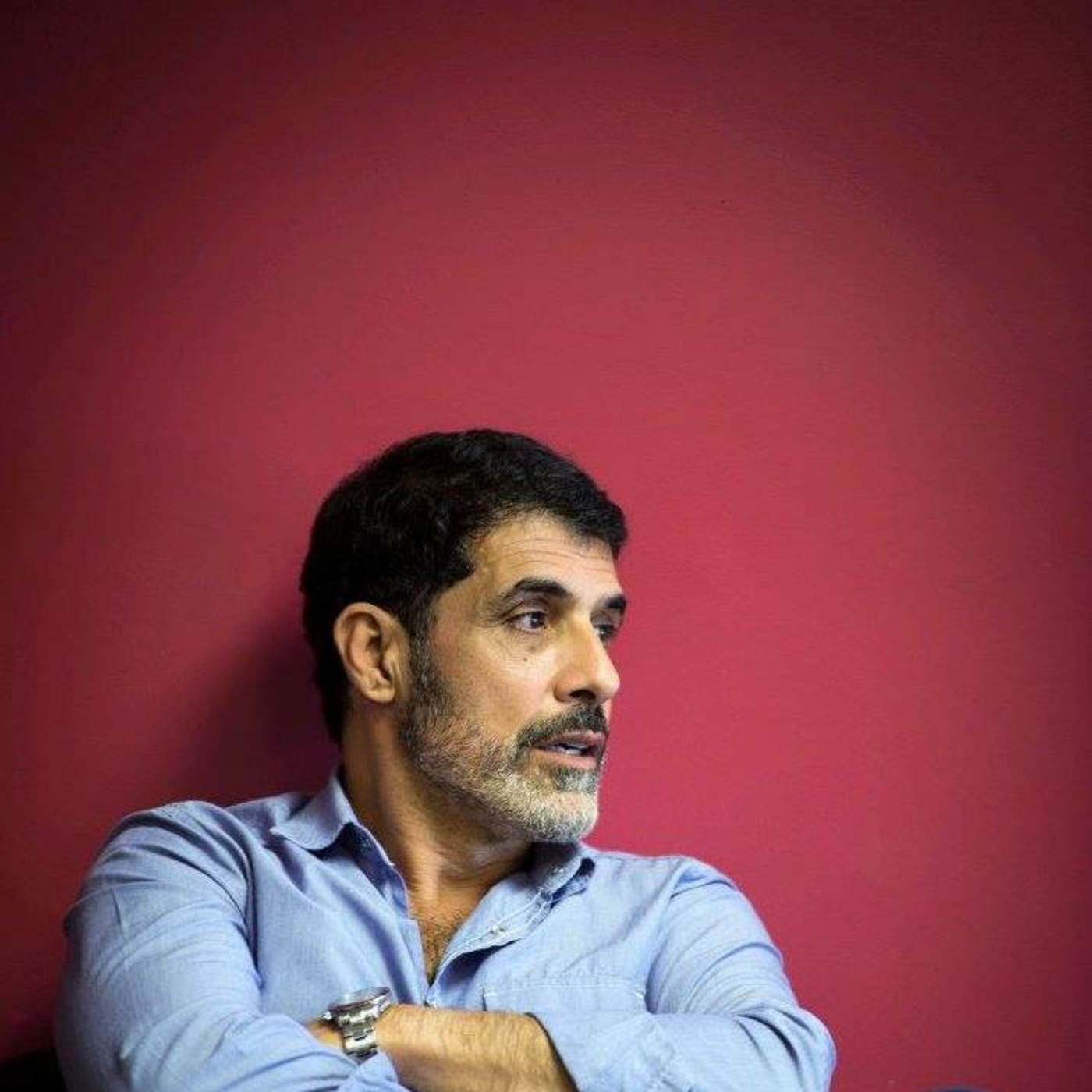
The Real Life Actor
Jeff Seymour
Audrey Helps Actors Podcast
Audrey Moore
Tipsy Casting
Jessica Sherman and Jenn Presser
Castability: The Podcast
The Castability App
Wendy Alane Wright's Secrets of a Hollywood Talent Manager Podcast
Wendy Alane Wright
Think Bigger Actors Podcast
DaJuan Johnson
ACTORS! YOU ARE ENOUGH!!
Amy Lyndon
Act Bold - Where Talent Meets A Plan
Act Bold with Anne Alexander-Sieder
An Actor Survives
Emily McKnight
Podnews Weekly Review
James Cridland and Sam Sethi
Buzzcast
Buzzsprout
Box Angeles (for Actors)
Mike 'Box' Elder
Brian Breaks Character
Brian Patacca
Celebrity Catch Up: Life After That Thing I Did
Genevieve HassanCinema Australia
Cinema Australia
Don't Be So Dramatic
Rachel BakerEquity Foundation Podcast
Equity Foundation PodcastIn The Moment: Acting, Art and Life
Anthony MeindlIn the Envelope: The Actor’s Podcast
Backstage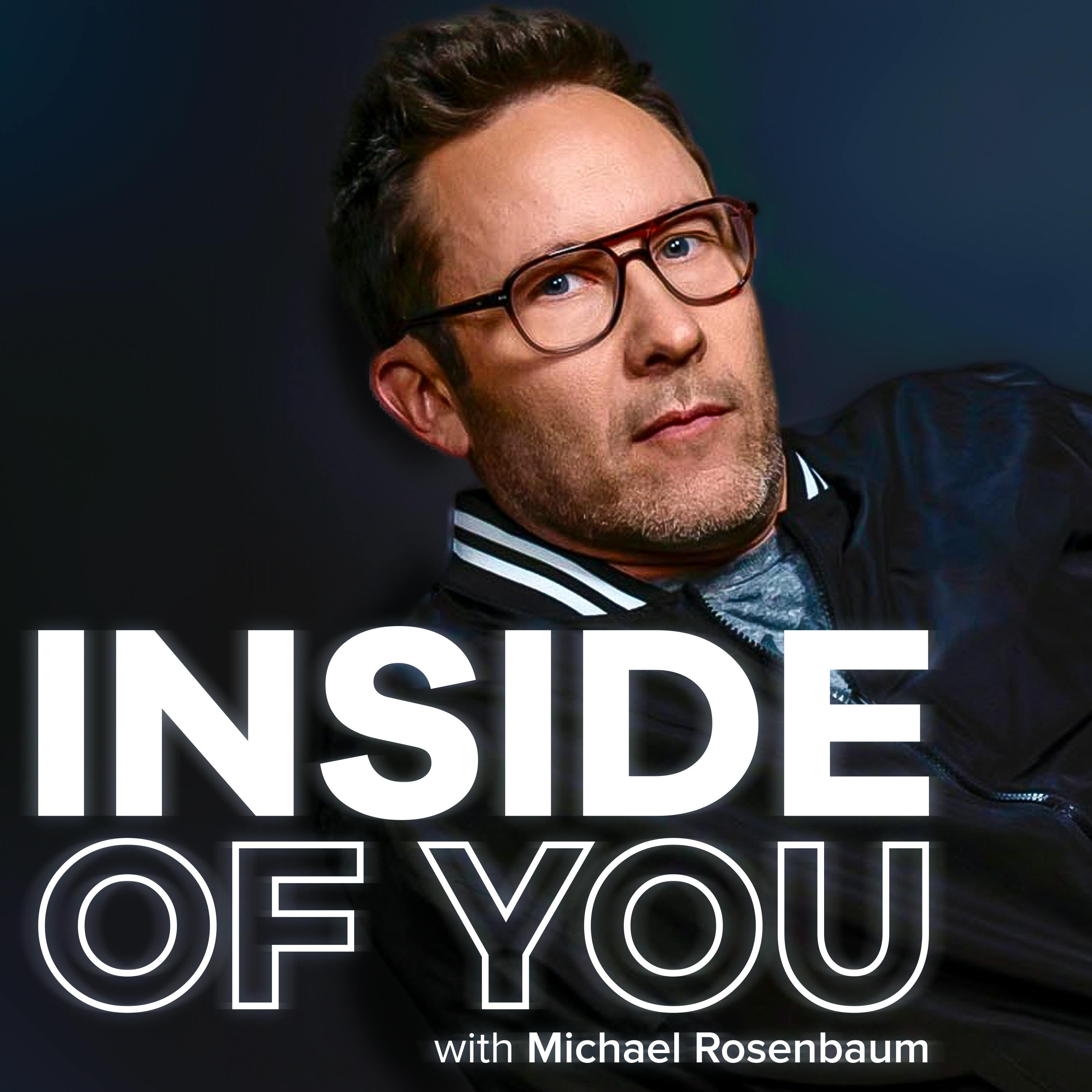
Inside of You with Michael Rosenbaum
Cumulus Podcast Network
Inspired by Nick Jones
Nick Jones
Killer Casting
Lisa Zambetti, Dean Laffan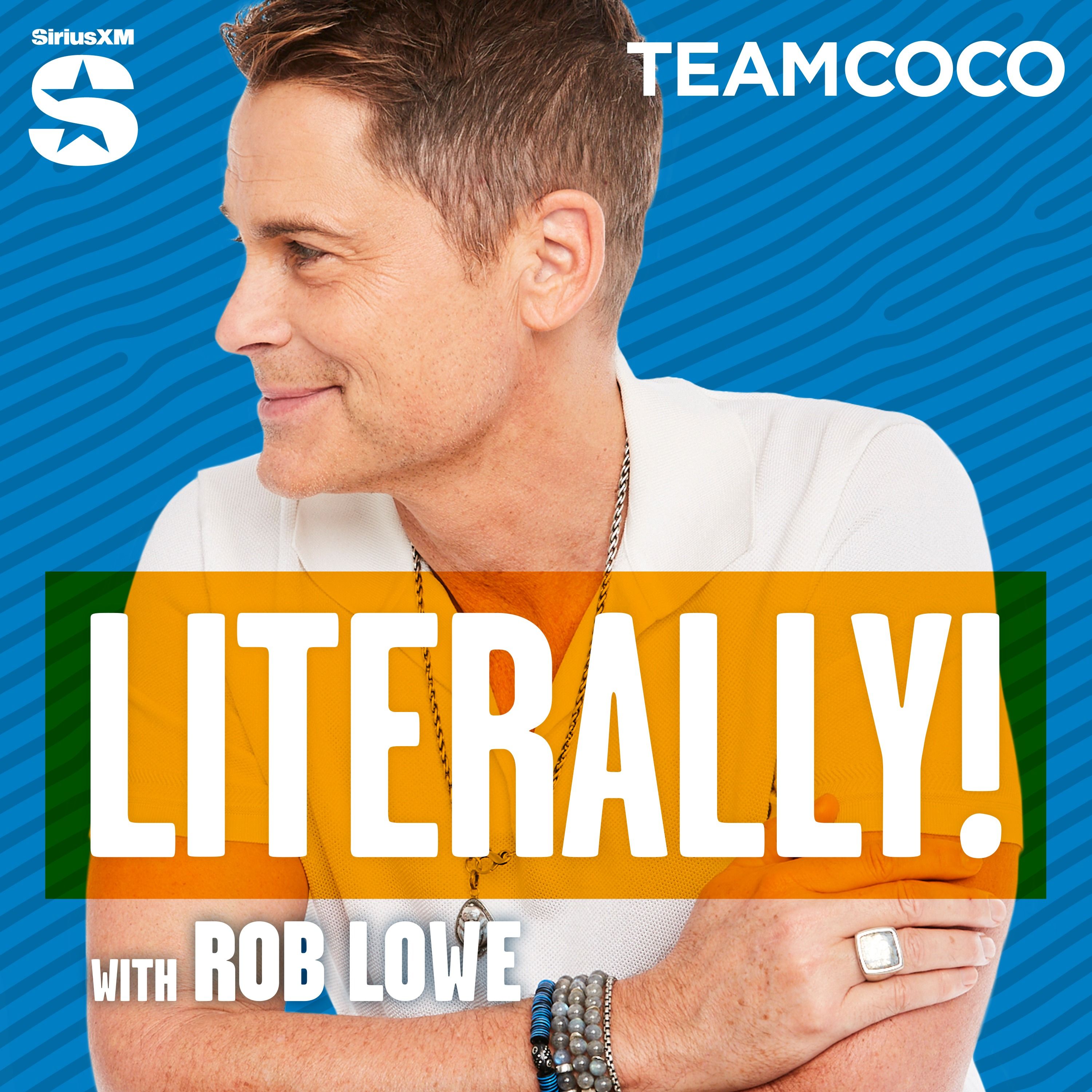
Literally! With Rob Lowe
Stitcher & Team Coco, Rob Lowe
Need To Know
Bryce Zabel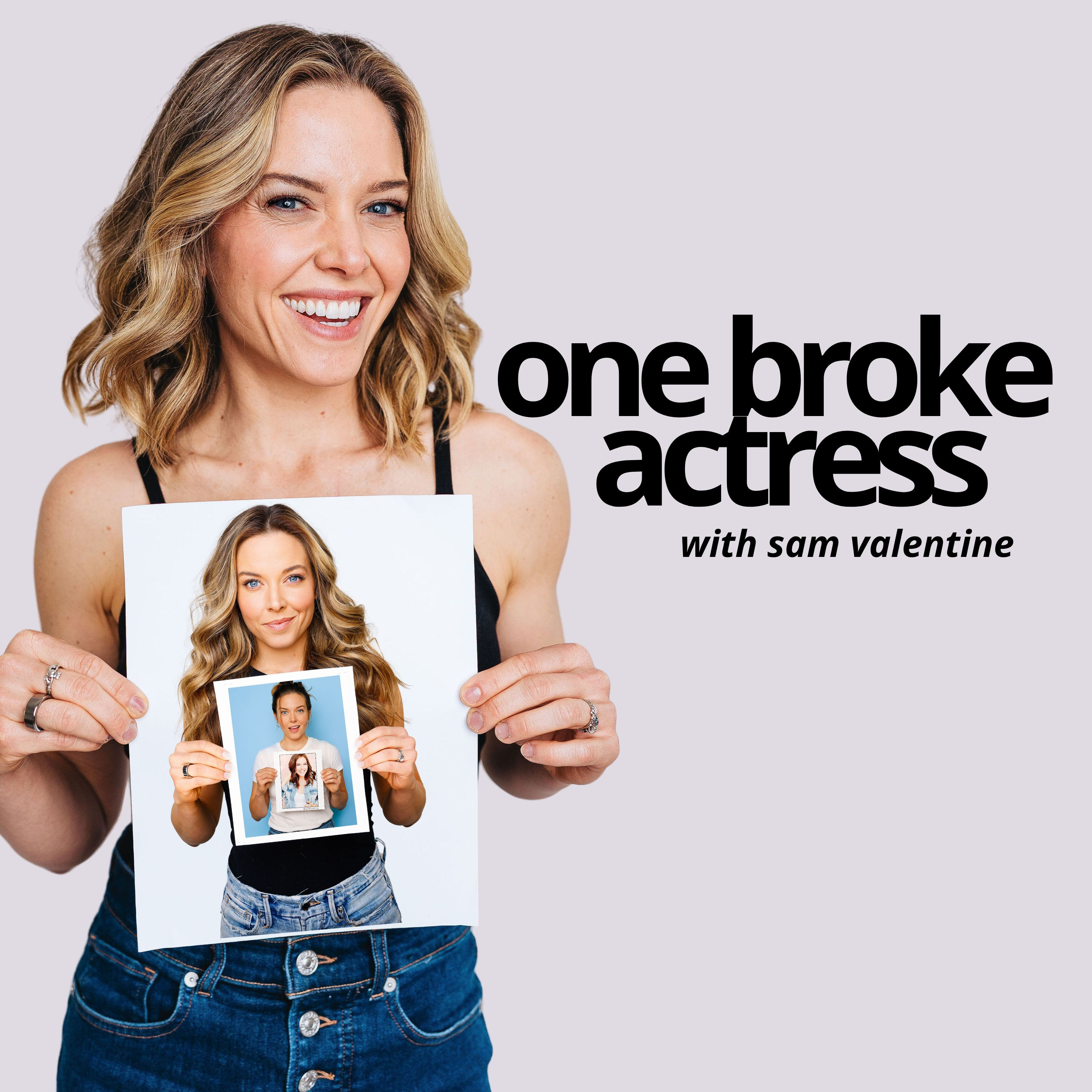
One Broke Actress
Sam Valentine
REAL ONES with Jon Bernthal
Jon Bernthal
SAG-AFTRA
SAG-AFTRA
SAG-AFTRA Foundation Conversations
SAG-AFTRA Foundation
Second Act Actors
Janet McMordie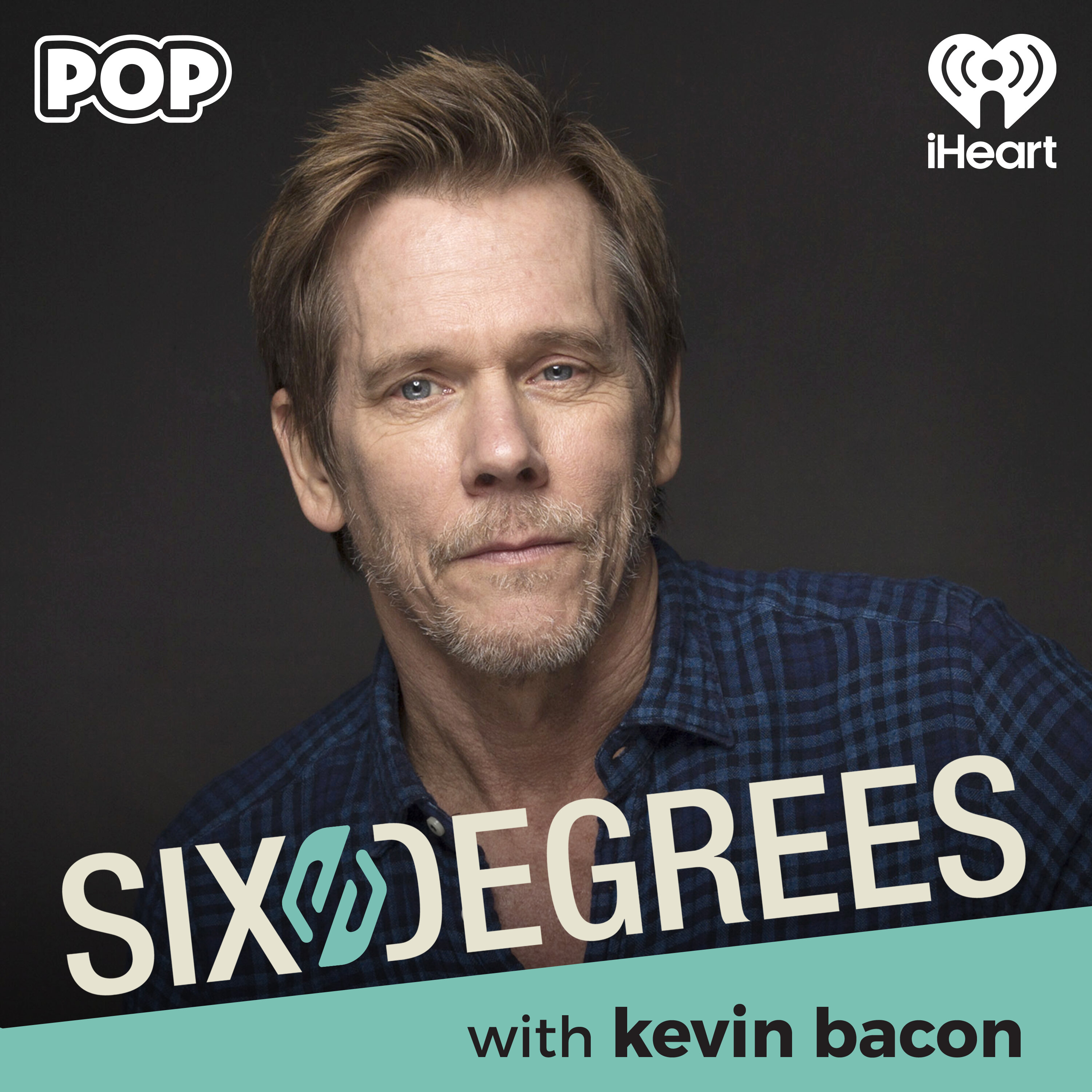
Six Degrees with Kevin Bacon
iHeartPodcasts and Warner Bros
SmartLess
Jason Bateman, Sean Hayes, Will Arnett
That One Audition with Alyshia Ochse
Alyshia Ochse
The 98%
Alexa Morden
The Acting Podcast from The BGB Studio
Risa Bramon Garcia and Steve Braun